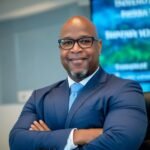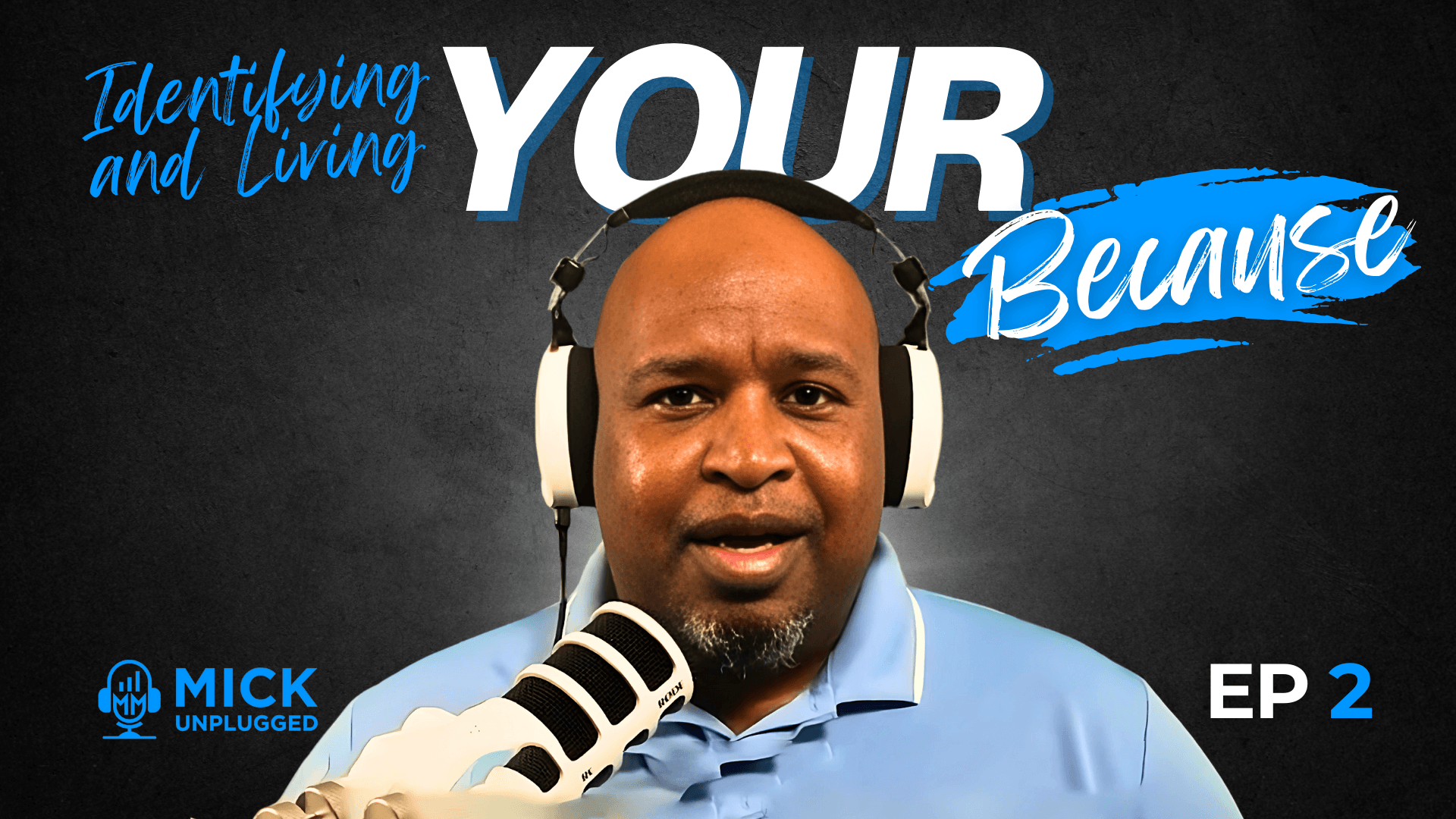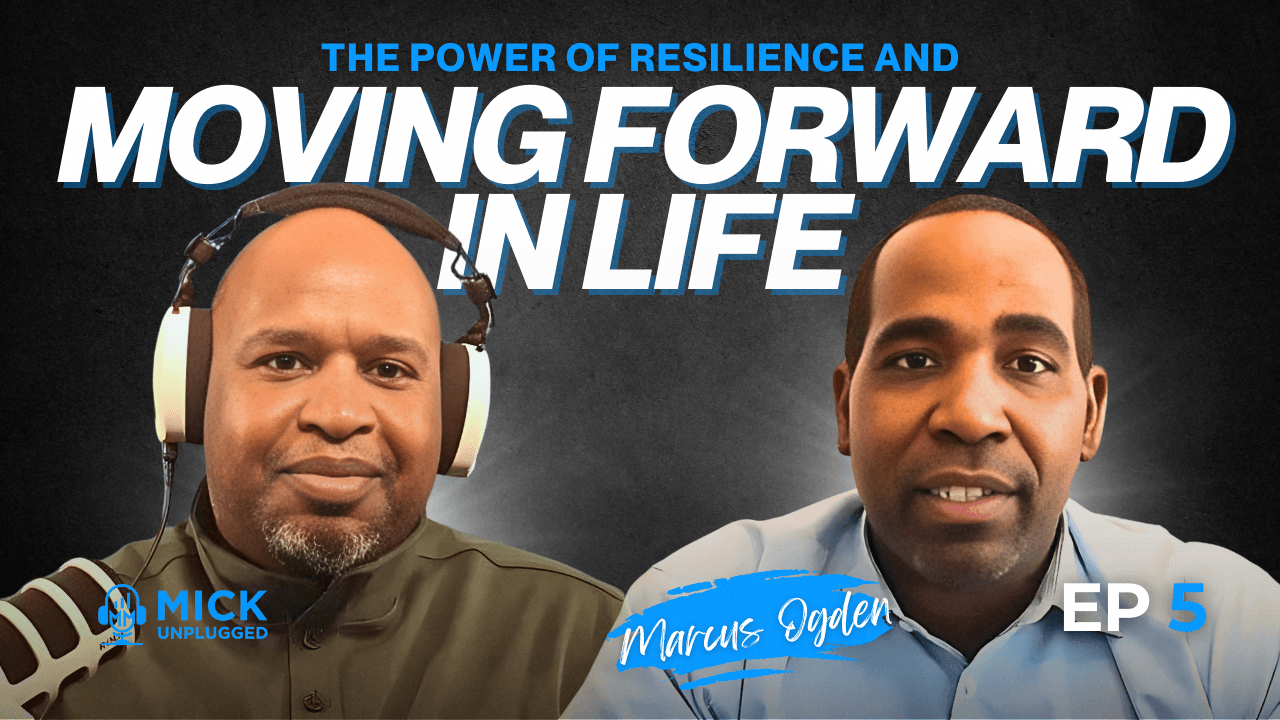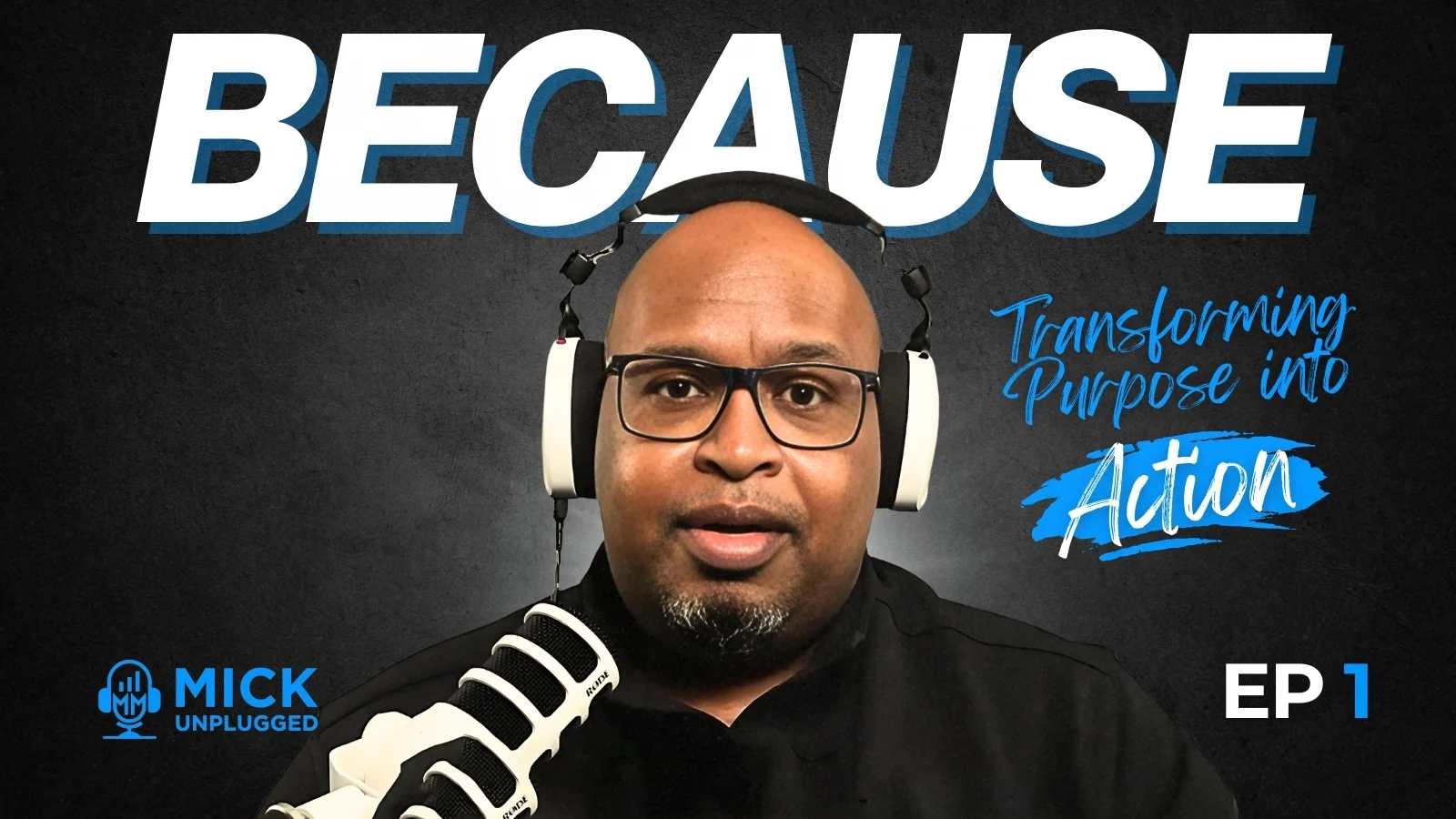[00:00:00] Andrea Hollingsworth: What is it that makes people transform for the better? What is it that fuels positive healing and change in human lives?
[00:00:10] Mick Hunt: It’s in our human DNA to do two things to care and offer help. What are some things that you’re seeing organizations do wrong or struggle with the most, where you bring the impact?
[00:00:23] Andrea Hollingsworth: Always start. With self compassion, we have to hustle and grind all the time and we have to overperform. And if we don’t at any point, our worth is under threat.
[00:00:33] Mick Hunt: Just be you, right? Show up as you every day and the surroundings actually adjust and adapt.
[00:00:39] Andrea Hollingsworth: Yeah. That the power of vulnerability. The power of authenticity, being real, being, being you.
[00:00:49] Podcast Intro: Welcome to Mic Unplugged, where we ignite potential and fuel purpose. Get ready for raw insights, bold moves, and game changing conversations. Buckle up. Here’s Mic.
[00:01:00] Mick Hunt: Ladies and gentlemen, welcome to another exciting episode. And today’s guest is a distinguished consultant, speaker, and academic with an extensive expertise.
[00:01:10] An organizational psychology and leadership development as the founder of Hollingsworth Consulting. She has dedicated her career to helping organizations enhance their leadership capabilities and foster inclusive work environments. Her deep understanding of human behavior and commitment to promoting diversity and inclusion have made her a trusted advisor.
[00:01:31] And thought leader in her field. Please join me in welcoming the insightful, the innovative, the influential Minnesota’s own miss Andrea Hollingsworth. Andrea, how are you doing today, dear?
[00:01:42] Andrea Hollingsworth: I’m great. Me and me sold as own.
[00:01:48] Mick Hunt: I can’t do the accent. I know it’s
[00:01:50] Andrea Hollingsworth: okay. I don’t expect you to, I’m going to do it for you.
[00:01:53] Mick Hunt: There we go. There we go. You know, I was telling you offline, one of my really good friends is from Minnesota and every once in a while, she’ll give me a little word that I’ve never heard before or an emphasis. I’m like, Oh yeah, I forgot you’re from Minnesota.
[00:02:08] It’s
[00:02:08] Andrea Hollingsworth: wonderful to be here. Thanks for the invite.
[00:02:11] Mick Hunt: I’m honored to actually have you on and there’s so many things that I know we can talk about, but I want to start with this, Andrea. I’ll make unplugged. We talk about going deeper than your why. Yeah. Right. And really being fueled by your purpose or your because as I like to call it.
[00:02:27] So for Andrea and all the amazing things that you do and the things that you help organizations with, I love to know, like, What’s your because? What’s your reason for taking this path and saying every day, this is my purpose. This is my mission.
[00:02:41] Andrea Hollingsworth: Yeah. Well, that’s the question, isn’t it? You know, my, my stepfather who had such an influence on me used to talk about the burn in the belly.
[00:02:51] You know, what’s the burn in the belly and that has stuck with me. And so I try to keep sight of that for so long. For several decades, I have had this burn in the belly question in me of what is it that makes people transform for the better? What is it that fuels positive healing and change in human lives?
[00:03:15] And I know that’s a huge question, but I first started thinking about it in my master’s program in my early 20s. My whole career has been really a winding road of exploring that question of healing from different angles. And really early on, what I landed on was that the power of, of human empathy of human care, human compassion, and trusting connection is absolutely at the core of positive transformation and healing in human life in pretty much every domain.
[00:03:49] And so for many years, I’ve been studying various aspects of Human relationships, you know, healthy human relationships, relationships that foster wholeness and inclusion and people feeling seen safe and supported because that really is the spot where, where folks, you know, learn to live into the best of themselves, whether they’re a business leader, whether they’re a parent, or whether they’re just a human being trying to get by in this extremely wounding and confusing and conflicted world.
[00:04:23] That we’re all navigating. So that’s the, like, that’s the high level, I would say.
[00:04:28] Mick Hunt: No, I love that. And so I want to go unplug a couple of things that you said, or at least one in particular. So you said that your stepfather had a huge influence on your life. Can you talk a little bit about that and how that shaped who you are today?
[00:04:42] Andrea Hollingsworth: Absolutely. Yeah. He’s actually a lot of the reason why I talk about compassionate leadership, because compassionate leadership made a big difference in his life. And then he became a compassionate leader to many people. I call it compassion contagion. So, so back in the sixties, so he’s, he passed away in, in 2016.
[00:05:02] And so he’s been gone for a while, but back in the 1960s, he was a young man navigating his way in the world. He grew up on a farm. In rural Minnesota, and he kind of tried college, but that wasn’t for him, and around the age of 20, he got a job working at a manufacturing plant in Anoka, Minnesota, which is where I’m from, and at the time, he was dating a girl named Tess, and Tess got pregnant unexpectedly, and back in those days, What people often did is they just got married.
[00:05:35] And so that’s what they did. They got married. And by the time my stepdad was 24, he found himself a family man, the father of three young children. And he had a job working on the floor of a manufacturing plant. Life was going along okay, until Tess was diagnosed with a fatal liver disorder. And so then at the tender age of 24, my stepdad found himself a widower with three young children under the age of five.
[00:06:05] And it was devastating. Now, my stepdad, I’ll just, I’ll call him Jerry. That was his name. Jerry. His, uh, his boss at Federal Cartridge where he worked, um, was a guy named RB, old RB. I grew up hearing stories of old RB because RB saw Jerry struggling. He. Observe Jerry, he started coming in late to work, you know, he was clearly hungover from another night of, you know, closing out the bars in Anoka, Minnesota.
[00:06:34] He, he knew that Jerry was dropping his three kids off at Ma and Pa’s for long stretches and just really, really struggling to hold on to himself. Right. And old RB, you know, he believed in Jerry, he had been the one to hire him. You know, here’s a kid who knows how to work hard. Here’s a kid who cares about other people.
[00:06:52] Here’s a kid who, who’s got promise, who’s got that burn in the belly. You know, he gave it some time, he was compassionate, but after a while, after enough, you know, late, late showing up to work, he was kind of frustrated. So he pulled my stepdad aside and he said, Look, kid, I know I can’t even begin to understand what you must be going through right now.
[00:07:14] And I feel for you. I really, really do feel for you. But you’re coming in late to work. Everybody here knows you’re drinking too much. You’re dropping your kids off at your parents for long straight. Your kids need you right now. And, and, and, and, You gotta pull yourself together, and if you don’t, you’ve got a pink slip coming.
[00:07:29] But here’s the other thing, kiddo. I, I care about you. And say, I’ve been going to, to the local AA group at the local parish for, for a long time, and if you’d ever like to come, we’d love to have you. And so that was a turning point for my dad in a moment of deep struggle and of deep trauma. My dad did indeed start to go to the AA group and with the sort of the tough love, compassionate leadership support of, of RB and others in his workplace, he was able to, to really find healing and to really find himself again in the lowest moment of his life.
[00:08:03] And, you know, he went on actually to become vice president of federal cartridge, you know, later in life. I’ve mentored so many people who are going through hard things. He was one of the first to advocate for hiring women and promoting women, you know, back in the 60s and 70s at Federal. And you know, I’ll be vulnerable and share it.
[00:08:25] Even me myself went when I, in my. Late twenties and early thirties realize, you know, I think I have a problem, you know, relying too much on alcohol in, in my own, you know, work life and personal life. This is impacting me. I sat down, I talked to my, my stepdad and I said, you know, what can you tell me? And he said, Annie.
[00:08:44] He always called me Annie. He said, you know, why don’t you come with me to that AA? He was still going to that same AA group. Wow. And, uh, and so he, so that’s a very, that’s a personal story of just how compassionate leadership has made a difference. But, um, my mom also extremely compassionate person. And so those are some of the stories that have really driven me.
[00:09:05] Mick Hunt: I love that. And what I love and I know about you is you take That same energy, that same moral compass. And that’s what you’re doing with leaders and organizations today. And so one, I appreciate you for sharing that story. And most importantly, just. The impact that you’re having with organizations, I truly admire, so thank you for that, too.
[00:09:27] Andrea Hollingsworth: Well, thank you. I, um, I truly, you know, we’re in a unique moment right now, societally. You know, at least here in the United States, it’s tense right now. People are, there’s a lot going on, you know, economically, politically, socially. We have a mental health crisis on our hands. We have, you know, employees still record numbers of burnout and exhaustion and, you know, this whole quiet quitting thing, it gets called different things, but it’s just basically workers feeling like I can’t even anymore and I’m going to show up physically, but be checked out mentally.
[00:10:03] And so it’s really my joy to go in and say, how can we give leaders, you know, everyone from frontline managers. to the very top, you know, the C suite leaders, the tools and the skills, because compassion is a skill. There’s a lot of research out there showing that, you know, it’s not that you’re either born compassionate or not.
[00:10:26] Everybody has the capacity to develop skills, interpersonal skills, to be more aware, to be more empathetic, and to be more action oriented for others. And so to go in and just give leaders those skills that will make, you know, People feel seen, feel safe and supported at work, um, because I believe work should be a place where at least we’re not re traumatized, you know?
[00:10:51] And, you know, I’ve also, um, had many years of experience as a psychotherapist and you would be amazed at the number of clients I have had who have come in and said, I have experienced verbal abuse by my manager. You know, outright yelling a lot of times it’s more insidious, you know, those microaggressions that wear on you day after day after day, assuming that you don’t know something or you can’t do something, or, you know, you’re, you’re not included in this conversation or whatnot because of some aspect of your identity.
[00:11:23] And that’s. there too, and that’s just as destructive. But there’s also this outright, you know, like verbal abuse that can happen in the workplace too. And I think it’s evidence of human pain. It’s evidence that we all need reminders and we need helps for how can we care for one another? We’re built to care for one another.
[00:11:41] We, we’re created to care. It’s in our DNA, and we all need that permission to care, and we need the skills to, to do it in ways that are, you know, that certainly are professional, and you have boundaries at work, but that really do build those humanizing connections that are going to help people heal and show up and do their best work.
[00:12:02] Mick Hunt: That’s amazing Annie, and I’m calling you Annie, hence now. That’s
[00:12:05] Andrea Hollingsworth: fine, I love it! My favorite people call me Annie.
[00:12:09] Mick Hunt: There you go. It’s also my mother’s name. So, you know,
[00:12:11] Andrea Hollingsworth: there we go. You
[00:12:13] Mick Hunt: get to be Annie. I love what you said about it’s in our human DNA to care. I also say this when I coach sales people and I coach leaders.
[00:12:22] I actually say that too. I say it’s in our human DNA to do two things. To care and offer help. Yes. Because I don’t care who you call. And the folks that know me know I always use this analogy. If you call Domino’s pizza right now, how are they going to answer the phone? Thanks for calling Domino’s. How can I help?
[00:12:42] How
[00:12:42] Andrea Hollingsworth: can I help you? Yeah.
[00:12:43] Mick Hunt: Domino’s knows a hundred percent of the time you’re calling to order pizza. Thanks for calling Domino’s. What’s your order?
[00:12:49] Andrea Hollingsworth: Right.
[00:12:51] Mick Hunt: It’s in our human DNA to help. I would say everyone that’s listening or watching this. Whether you own a business, a leader at a business, work at a business, whatever it is, someone at your organization answers the phone, how can I help you?
[00:13:03] But it’s so robotic that we don’t actually try to really offer help. And I know that that’s one of the things that you really or coaching teaches that the care, the empathy, um, with what you do with leaders, what are some things that you’re seeing organizations do wrong or struggle with the most where you bring the impact?
[00:13:24] Andrea Hollingsworth: Yep, absolutely. So one of the things that really gets in the way of offering help is our own, like if you’re a leader, sometimes your own, Either exhaustion and suffering yourself, or I’ve often seen your own inner critic or your own perfectionism really can get in the way of being aware of other people and supportive of other people.
[00:13:46] So when I work with leaders around compassionate leadership, I always start. With self compassion because, you know, so many of us have these muscled up inner critics that nobody else sees or hears and we just feel harangued and oppressed by these perfectionistic standards. And we’re so hard on ourselves.
[00:14:06] We’ve got shame and we’ve got all kinds of inner scripts going where, like, we have to hustle and grind all the time and we have to overperform. And if we don’t, at any point, our worth is under threat. That’s the society we live in. Right? We’ve got this like, you’re never enough thing going on everywhere for everybody.
[00:14:25] And so leaders, especially the research shows that leaders are often very hard on themselves and that can impact the way they show up for others. And so I actually have a story about that, about that myself. One of the reasons I’m so passionate about self compassion is that my inner critic basically ruined my academic career.
[00:14:44] I used to be a professor. I spent my twenties, my early thirties climbing the ranks of academia. And by the time I was 34, I had like arrived at the top of the mountain. I had gotten this tenure track job at Boston University and, and all my colleagues were like, How did you do it? And I was like, Oh, you know, I, I love what I do and I work hard and I’m so passionate.
[00:15:04] All that was true. But what nobody else saw is that this Inner critic was driving me all the time, all the time. I remember one time I was, um, I was giving a presentation at Princeton on ancient meditative spiritual practices in the medieval era and modern day neuroscience. All right. I was putting those two things together.
[00:15:26] That was what I did. And, and the presentation went really, really well. I thought, except that the whole time there was this, uh, this gray haired scholar in the front row and he was scowling. And I, I remember I was thinking to myself, I don’t think the Q and A is going to go very well because this guy, this guy, and I was right.
[00:15:45] He’s at, when I was done, he stood up and he raised his hand and he said, excuse me, Did you consult the original Latin of the medieval text that you were referencing? Because in the, in the original Latin, it seems to indicate that, you know, and I don’t even remember what he said, but he, he went on to undercut my entire argument based on the fact that I was relying on an English translation of this.
[00:16:08] I don’t know Latin. So I handled it okay in the moment, but my inner critic, She sprang into action. She was like, why didn’t you consult the original Latin? Because you don’t know Latin, do you? You better get your ass in gear, girl! Like, in addition to all the teaching and publishing and research and mentoring and blah blah blah, You better learn Latin now!
[00:16:32] And so I found myself like 3 30 a. m. Every single day, seven days a week, I’m up looking at my Latin flashcards. I burned out. I burned out at the age of 36. I walked away from my dream job at BU and I sometimes wonder, you know, if I would have learned to give myself a little bit of grace. I mean, I’m all for high standards.
[00:16:55] Healthy striving is one thing. But it’s this maladaptive perfectionism, that’s what researchers call it, that really, um, it ruined me. It also, you know, it really impacted the way that I showed up for my students, for my colleagues, for my research assistants. I was just, I had this inner criticality, and like, Constant anxiety and stress about performance and it was impacting everybody.
[00:17:21] And so to get back to your question of what hinders leaders showing up for others, I think we have to start really close to home and help leaders realize like a, you need to be aware, you need to be curious about what is, you know, when you make a mistake. Or when you feel insecure about something, what are you telling yourself?
[00:17:41] What is your inner critic saying to you, right? And just be curious about that. And then to try to connect with other people and, and try to say like, look, you know, I need to talk this through, like, am I overblowing this? Are my standards like, you know, you have to have people you can talk to about your perfectionism and about your anxiety so that they can go like, Oh, sweetheart, I, I’ve made that mistake a million times.
[00:18:05] You are doing awesome. So you can get some perspective and then you have to learn to talk to yourself differently and say like, you know, I made a mistake. I’m a human. Mistakes are a part of life. I’m going to choose kindness, you know, and if there’s accountability needed, I’m going to choose accountability too and move on.
[00:18:22] Because if we can’t, Be aware of that inner critic and soften it with with some kindness and with some, hey, you know, I can support myself and learn and grow, but I’m not going to be hard on myself. If we can’t do that, we stay in this very kind of amped up, anxious, hypercritical mode. And I don’t know, Mick, have you ever been around somebody who just oozes criticality?
[00:18:47] Like you can tell they’re hard on themselves and other people.
[00:18:49] Mick Hunt: Absolutely.
[00:18:50] Andrea Hollingsworth: Yeah.
[00:18:51] Mick Hunt: Absolutely.
[00:18:51] Andrea Hollingsworth: It’s in their, it’s in their energy, right?
[00:18:53] Mick Hunt: Correct. Correct. And I
[00:18:55] Andrea Hollingsworth: used to be that person. And so what I do is I, I start out by helping leaders work on themselves. And what that does then is it frees them up. All of a sudden they get rid of a lot of mental noise.
[00:19:08] And they learn to bounce back more quickly and then they can be more aware of other people. Like, Hey, what are you going through? How can I support you? Hey, are you down on yourself for whatever mistake? It does so many wonders. It just calms us down so that we can truly be. Present in the ways that we want to and need to as leaders.
[00:19:31] Mick Hunt: You know, I love that. And I will even say a step deeper for the person that’s not a leader of an organization. Mm-Hmm. . Because all of us that are listening and watching, even if you don’t lead a organization, are probably a leader in your household or leader in
[00:19:45] Andrea Hollingsworth: your
[00:19:45] Mick Hunt: community. Right? Everyone’s a leader, like leader
[00:19:47] Andrea Hollingsworth: ourselves through our lives too.
[00:19:48] right? Everyone’s a leader.
[00:19:49] Mick Hunt: So I would say that that is also critical for. The non business leaders, don’t be overly critical of yourself. I would say one of the top five things that, that most humans do that adds to mental health stress is you’re overcritical. You’re thinking of what every 2 billion people in the world could be thinking about you.
[00:20:14] Andrea Hollingsworth: And I
[00:20:14] Mick Hunt: have the same, just be you. Everybody else will adjust. I actually got that shout out to the comedian Mookie G, right? One of my really good friends and comedian. Like he gave me a shirt that literally says that be yourself. They’ll adjust. And I think that that’s really important. Can you send
[00:20:30] Andrea Hollingsworth: me a shirt like that says that too?
[00:20:31] I will
[00:20:32] Mick Hunt: totally send you that shirt. Yes,
[00:20:34] Andrea Hollingsworth: I
[00:20:35] Mick Hunt: got you covered offline. I’ll get your size and get it shipped to you. But it’s really important that people understand whether you’re a leader in a business, leader in your household, leader in your community.
[00:20:47] Andrea Hollingsworth: Yeah.
[00:20:47] Mick Hunt: Always authentically be you.
[00:20:50] Andrea Hollingsworth: Because
[00:20:51] Mick Hunt: people can see when you’re faking, right?
[00:20:54] People can see when you don’t believe in you, right? And most importantly, people can see when you’re trying too hard, right? Even if you’re not faking, but you’re trying too hard. People see that and it comes across weird. And we do those things as humans, because we think that it’s our purpose to either please everyone, to be the person or, Or people that people want us to be.
[00:21:18] And that’s not the case. And I know that, that you talk a lot about that in your psychology as well, too. Like just, just be you, right? Show up as you every day and the surroundings actually adjust and adapt.
[00:21:29] Andrea Hollingsworth: Yeah. That the power of vulnerability, the power of authenticity. Being real, being you, is so critical.
[00:21:36] You know, it’s critical in every area. You mentioned maybe a lot of listeners, maybe they’re not a business leader, but maybe they’re a leader in their household. You know, what is it like when maybe you’re, you’re having maybe a tense moment with your partner, with your child, and you just take a deep breath and you say, I gotta be honest with you now.
[00:21:52] Right now, I just, here’s what I’m feeling, you know, or, you know, maybe make a mistake and take a deep breath and say, you know, I gotta be honest with you. I, I need to apologize, you know, instead of like we put up these masks and it, it distances us from ourselves and from other people. But in, in organizational context, it’s, it’s really powerful when leaders are, are vulnerable when they’re, when they choose to just show up as themselves and they’re not putting, putting on anything.
[00:22:20] That’s actually another big element of healing, especially when you’ve got work contexts where there’s a lot of tension going on, maybe around, you know, around, you know, really sensitive subjects. I actually have a story there. So a number of years ago, I was working with a leader in a key division of the city of Minneapolis.
[00:22:39] I’m not going to say which one, but, and his team. And in the wake of the murder of George Floyd, a member of his team responded publicly to that event, like made a public statement about that event, that ended up really wounding and hurting some other members of his team. So you got the context. Somebody made a public statement.
[00:22:57] It was just like other people were just like, Oh, hell no. Right. And so he found himself then on a zoom meeting shortly after that. And, and everybody was there, you know, the people who were pissed off about the public statement. And also the folks who had crafted the public statement were on the call.
[00:23:14] Everybody’s there. This is what we’re. We’re going to address and really all these tensions around inclusion and race and privilege. It’s all there. And people are feeling all the feels and he gets on and he says, he takes a deep breath and he goes,
[00:23:32] everybody, I need to start out with by taking a deep breath. He said, I can feel my heart pounding. Um, I can feel myself, you know, I can feel my body. He said, I just, I’m feeling a lot right now. I’m feeling a lot of grief. I’m sad about the pain. In our city, I’m sad about the pain here on this call. And then he led everybody in just taking a few deep breaths together.
[00:24:04] And then he said, um, he said, I want you to know that whatever you’re feeling here today, before we get started, maybe you’re grieved as well. Maybe you’re angry. Maybe you’re confused. He said, all of those feelings are welcome. He said, if you didn’t feel them. Like I’m feeling them, you wouldn’t be human.
[00:24:22] And more than anything, we here in this division need to hold on to our humanity. And so he, he gave everyone a minute to kind of connect with themselves and what they’re feeling. He laid down some ground rules for safe dialogue, and then they dived in and, or dove in. And it was really a turning point in this group starting to heal some of these deep divisions around culture, race, inclusion, privilege that had been, you know, like, of course, the, the George Floyd murder, like brought everything to the fore and for all, you know, for so many of us.
[00:24:58] And so, but that conversation, just by him being vulnerable and real, Not coming in with like, alright, I’m going to fix this, and here’s how it’s going to go, and hiding behind some kind of mask of like, I’ve got it all figured out. He didn’t have it all figured out. He was feeling just as, you know, amped up, and grieved, and probably angry and confused as everybody else.
[00:25:21] And just by giving people permission to be human? It opened the way for actual deep healing in the, in the, the team. So that is so powerful.
[00:25:31] Mick Hunt: Agree, agree. And you teach a lot of that. And one of the things that not one, Annie, I could talk to you all day, right? So I could totally talk to you all day. One of the things that I know you’re really amazing at is culture within organizations, right?
[00:25:47] And, and again, just where we talked about where leaders go wrong with themselves. Oops. I also think leaders miss the boat on culture. One of the, one of my biggest pet peeves in the world are mission and vision statements, because, and I say this when I speak publicly, right? Like I guarantee you 90 percent of your staff, and I don’t care how many team members you have, can’t recite your mission and vision statement with passion and energy, right?
[00:26:13] They probably don’t know it. And most of the leaders don’t know their own mission and vision. It’s true, isn’t
[00:26:17] Andrea Hollingsworth: it? They
[00:26:18] Mick Hunt: hired a marketing company and everyone’s mission and vision statement sounds pretty much the same. I believe in having because statements, right? Like, you know, one of my companies that I own are because statement is because results matter.
[00:26:34] Andrea Hollingsworth: We always
[00:26:35] Mick Hunt: show up
[00:26:36] Andrea Hollingsworth: easy
[00:26:37] Mick Hunt: to understand, easy to communicate, easy to feel because the results matter. Another one is because we, we care about the community and what we serve. We’re always there.
[00:26:50] Andrea Hollingsworth: And
[00:26:52] Mick Hunt: so I think if, if businesses went with because statements, or they don’t have to be because statements, but really had, A handful of core values that they really talked about and really communicated and were transparent with their teams and had their team involvement in what those core values really were business culture.
[00:27:16] Would immediately improve. Not going to say it’s going to change overnight, but you would see an immediate improvement when you get rid of mission and vision statements that nobody cares or knows about, but really talk about the heart of this is our reason. This is our purpose and let’s go from there.
[00:27:30] So I’d love your thoughts.
[00:27:31] Andrea Hollingsworth: I love everything you just said, Mick. I just, I don’t know that I have a whole lot to add to it. I, you know, just like we’re built to care and connect with other people, we’re also built to have meaning in our lives. And I think there’s this dearth of meaning in work lately, people just go and they don’t know, they don’t even know why they’re there.
[00:27:52] And so when leaders can say, can, as you said, work with teams to say, this is our because this is what, you know, this is the reason that we’re all doing what we’re doing. And to keep that top of mind, it meets this deep, almost spiritual need in people. To have meaning in what, in the work that they do. And when people don’t have that, when they don’t have shared meaning, I really think it’s a key driver for a lot of the, the alienation, the isolation, the irritability, the conflict, the, the exhaustion and, and disengagement that, that we see, um, in teams.
[00:28:32] And so I think culture is built in those really small moments of true, genuine human interaction where people are building relationships of trust and connection and where they’re, they’re reminding one another, whether it’s a small, like, Hey, here’s a story of a, an interaction I had yesterday with a client where, you know, let’s say your, because as, Because you, I don’t know, maybe you’re in the financial industry and because you want to help your clients have confidence in a strong, secure financial future for themselves and their children.
[00:29:07] I don’t know. I just made that up. You know, maybe you tell a story about someone who’s on the verge of retirement and that means that you’ve been working with and like who they had a really emotional moment with you where they were like, Oh my gosh, like I did, I did it. I think I can retire and sharing little things like that, that exemplify whatever your because is with your colleagues is so important.
[00:29:31] Those stories, those human connections that remind everybody like, Oh, right. You know, right. This is what it’s all about. And, um, that’s such a gift, not just for the company. Obviously the organization is going to do better when people feel that deep. Authentic motivation to show up with all of themselves.
[00:29:50] Right. But it’s also such a gift just on a human level. We spend so much time at work and when we can feel that sense of like, wow, my life matters here at work. It goes way beyond business goals. It goes into like human blessing is what I want to say.
[00:30:07] Mick Hunt: Totally agree. And again, like I just said, I could talk to you forever, but I know you’re a very busy person and I won’t hold you hostage like that.
[00:30:15] Right. What does Annie have going on now? What do you have coming up in the future? Like talk to us about Annie.
[00:30:21] Andrea Hollingsworth: Sure. So I am so excited. I do quite a bit of keynote speaking. So I love to get in front of audiences and inspire them to be more radically self compassionate. Um, because we’re all, we all need that, but also more compassionate leaders.
[00:30:34] And so, yeah, keynote speaking is something I love to do. I have Workshops where I work with groups of leaders on things like becoming more aware, becoming more self compassionate, becoming more empathetic, becoming more resilient, um, doing hard things with heart, having difficult conversations, making difficult business decisions while still being compassionate.
[00:30:55] I have a whole workshop on that, but then I also do coaching. So I am trained as a therapist, but I also, you know, have coaching skills. And so I kind of blend them. I do something kind of interesting called therapeutic coaching. And so I work with leaders who feel like maybe they need some healing, but they also want to keep track of, you know, what are the goals that I’m working towards as well.
[00:31:15] In my professional career. So that’s a little bit of what I’ve got going on. I also published a book this year, just a couple of months ago, called the compassion advantage, how top leaders build more humanizing workplaces. And that’s available on Amazon, Barnes and Noble, anywhere you could, anywhere you want to get a book.
[00:31:30] It’s you can, you can find it.
[00:31:32] Mick Hunt: How about this? How about the first. 10 people. And whenever I do this, I always get like a hundred. And so I always have to let people know it’s for the first, the first 10 people, I will purchase a book for you. If you message me, Annie, that way I’ll know. Annie dash leader.
[00:31:53] Nice. I will, I will purchase a book and ship it out to the first 10.
[00:31:57] Andrea Hollingsworth: Oh, that’s fantastic.
[00:31:59] Mick Hunt: I
[00:32:00] Andrea Hollingsworth: love it. I love it. That’s fantastic.
[00:32:02] Mick Hunt: Yeah. And what about your social handles? Your, how do you want people to connect and follow you and find you?
[00:32:07] Andrea Hollingsworth: Um, yeah. So if you’re on the interweb, you can just type in Hollingsworth consulting.
[00:32:15] com and that’s my website. And then LinkedIn is my main social handle. You can just search Andrea Hollingsworth, PhD. And I’ll, hopefully I’ll come right up. I don’t think there’s another Andrew Hellingsworth PhD, but maybe there is. So yeah, I’d love to connect with any of your listeners. If they, you know, if they’re interested in working on their inner critic, if they’re interested in becoming a more compassionate leader, shifting some culture stuff in their organization, I’d love to talk to them.
[00:32:41] Yeah,
[00:32:42] Mick Hunt: absolutely. Absolutely. Annie, thank you so much for sharing some time with us today.
[00:32:47] Andrea Hollingsworth: It’s been such a joy, Mike, to talk with you. We have so many shared passions, and so it’s been an honor. Thank you.
[00:32:54] Mick Hunt: Absolutely. And to all the listeners and viewers, remember, you’re because. Is your superpower go unleashing
[00:33:04] Podcast Outro: Thank you for tuning in to mc unplug keep pushing your limits embracing your purpose and chasing greatness until next time Stay unstoppable

